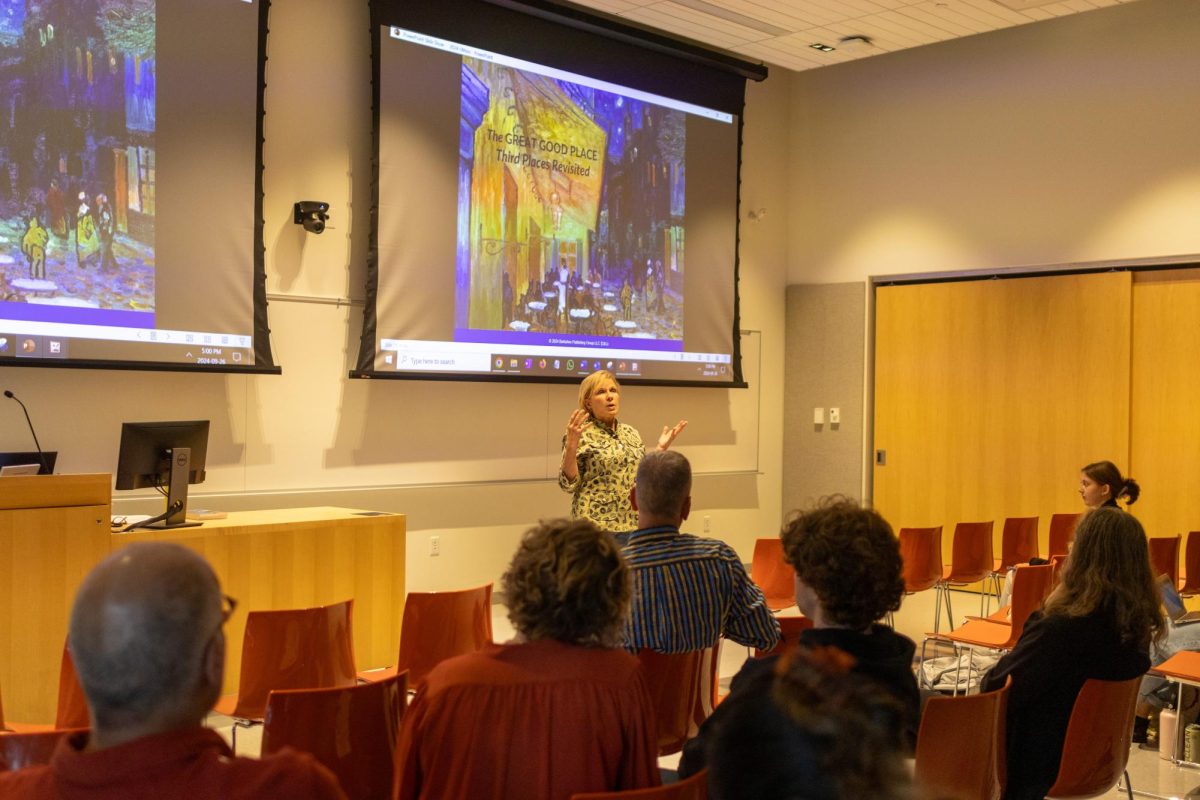
A husband and wife duo presented a lecture titled “Engagement and Positive Psychology for STEM Learning and Beyond” as part of a STEM seminar series late Tuesday afternoon in Hasbrouck at the University of Massachusetts.
Mark Tuominen, a physics professor at the University, and his wife Lori Tuominen, a coach in positive psychology and positive organizational development, ran the hour-long seminar, which was mostly attended by faculty and graduate students.
The couple teaches a faculty first-year seminar every fall semester titled “Positive Psychology: The Science of Happiness, Creativity and Accomplishment.” Mark Tuominen described the course as “a sample plate” of topics in positive psychology. In comparison, he noted that Tuesday’s seminar was merely a “taste” of such concepts.
Overall, positive psychology is “the scientific study of the strengths and virtues that enable individuals and communities to thrive,” according to a definition that the couple posted from the Positive Psychology Center at the University of Pennsylvania.
Some of the major concepts in positive psychology, they noted, include gratitude, resilience, self-efficacy, neuroplasticity, observation and mindfulness. “It’s essentially all those things that make life worth living,” said Lori Tuominen. “So much of psychology is focused on the diagnostic criteria and the pathology, and [positive psychology] is just the opposite.”
“They’re not saying ignore the pathology; they’re saying we need to also look at what’s good,” she added.
The seminar was largely cooperative, with the couple engaging attendees in interactive activities to model some of the aforementioned concepts.
One such activity was meant to showcase observation, with the couple noting that, “The deeper we look, the more we see.” Attendees broke off into pairs and described an object to their partner, who had their eyes closed. They could not provide any information about the object’s use, only the physical characteristics of the object.
Many of the participants noted that it was hard to guess what the object was and only a few were able to correctly do so; the couple mentioned that this was a very common occurrence and that these exercises are meant to get you in the habit of becoming a more active, observant listener.
“Observation is like a muscle: the more you use it, the better you are at it,” said Mark Tuominen, “so that’s kind of the message that we want to send home.”
The couple also discussed the importance of not being afraid to take risks or potentially fail when it comes to learning. To model this, Lori Tuominen discussed a period of 30 days in which she persistently tried to teach herself how to juggle for just five minutes a day, refusing to give up when she initially struggled.
At the end of the 30-day period, Lori Tuominen could juggle three balls 168 times consecutively, a far cry from her humble beginning of just four consecutive throws.
“My own teacher of positive psychology says that ‘you learn to fail or you fail to learn,’” she said. “You can’t let yourself get in the way, you have to just keep trying.”
Though the seminar had a relatively small number of attendees, there was never a lull in the discussion; many event-goers hung around afterward to chat with each other and with the Tuominens.
When asked to comment on the seminar, Ted Leone, a computer science graduate student at the University, said, “I will take away that it is still worthwhile to pursue my interest in applying positive psychology to my own life.”
The Tuominens ended their lecture by emphasizing that positive psychology is not simply about what is good and that it should not be confused for positive thinking.
“It’s to engage the full resources of yourself,” Lori Tuominen said. “It’s recognizing all of your emotions, positive or negative. Struggle is good.”
Jami Dunn can be reached at [email protected] and followed on Twitter @JamiDunn_.


















